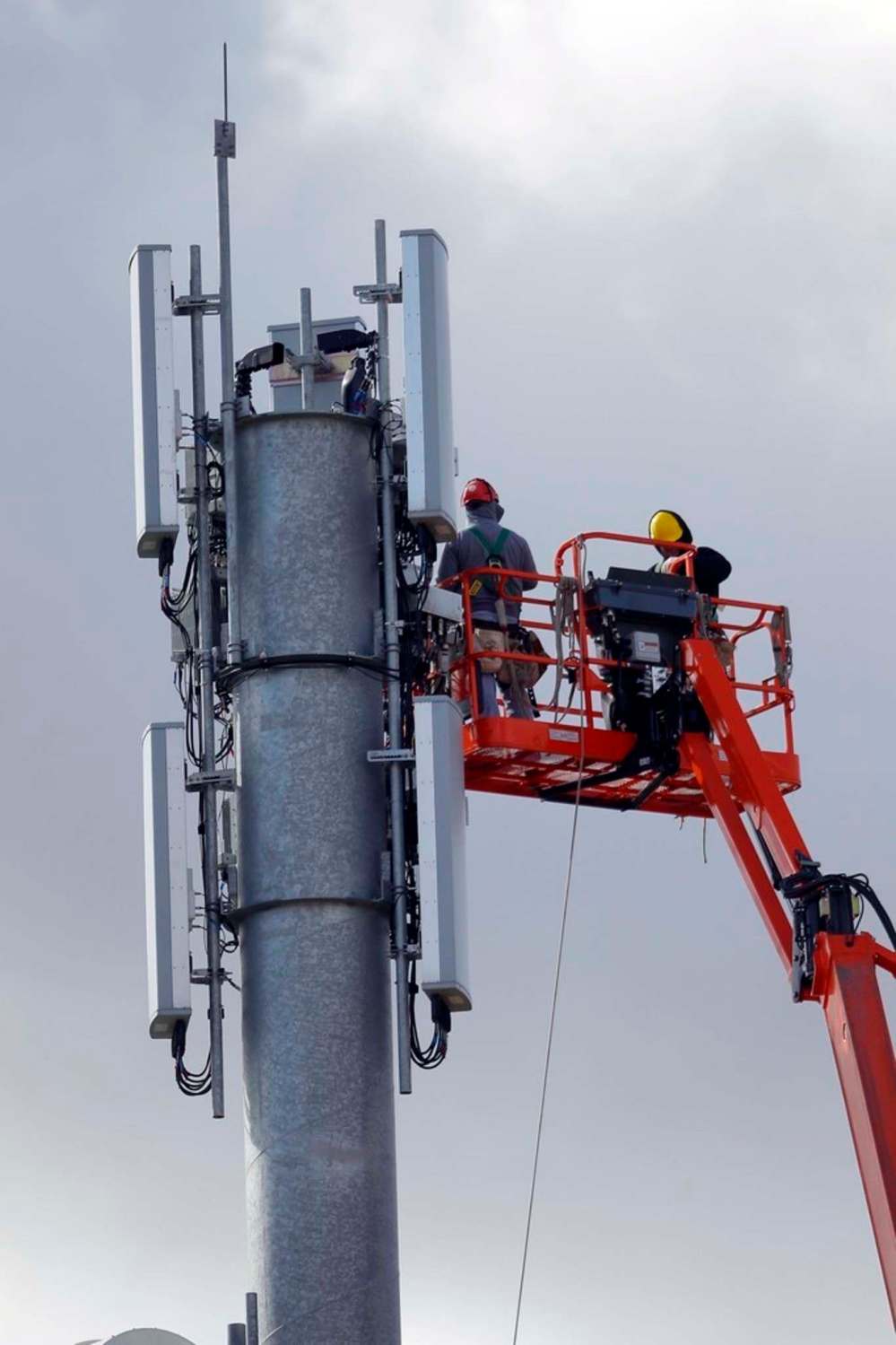City to begin tests of 5G support tech
Advertisement
Read this article for free:
or
Already have an account? Log in here »
To continue reading, please subscribe:
Monthly Digital Subscription
$0 for the first 4 weeks*
- Enjoy unlimited reading on winnipegfreepress.com
- Read the E-Edition, our digital replica newspaper
- Access News Break, our award-winning app
- Play interactive puzzles
*No charge for 4 weeks then price increases to the regular rate of $19.00 plus GST every four weeks. Offer available to new and qualified returning subscribers only. Cancel any time.
Monthly Digital Subscription
$4.75/week*
- Enjoy unlimited reading on winnipegfreepress.com
- Read the E-Edition, our digital replica newspaper
- Access News Break, our award-winning app
- Play interactive puzzles
*Billed as $19 plus GST every four weeks. Cancel any time.
To continue reading, please subscribe:
Add Free Press access to your Brandon Sun subscription for only an additional
$1 for the first 4 weeks*
*Your next subscription payment will increase by $1.00 and you will be charged $16.99 plus GST for four weeks. After four weeks, your payment will increase to $23.99 plus GST every four weeks.
Read unlimited articles for free today:
or
Already have an account? Log in here »
Hey there, time traveller!
This article was published 08/05/2020 (2052 days ago), so information in it may no longer be current.
Winnipeg will begin testing “small cell” technology this year, with devices that support a future transition to 5G service.
Small cells are meant to improve cellular reception throughout the city, augmenting traditional “macro cell” towers that serve existing 4G networks, according to a public service report.
The devices can come in the shape of a small box that can be placed at a building or atop a traffic signal or other pole, Doug Hamm, City of Winnipeg manager of connectivity, wrote in the report.

“The economic benefit for the city is quite compelling… we really need to help that (technology) industry move forward,” said Coun. John Orlikow (River Heights-Fort Garry), chairman of council’s innovation committee.
The city should try to make money in the process, by charging cell carriers who use city land and infrastructure to post the devices, he said.
“If they use public space, they should be charged.”
In an email, city spokesman Adam Campbell said no exact start dates or locations have been set for the trials, which are expected to continue into 2021. Campbell noted cellphone carriers could also conduct separate trials that don’t involve city property.
The city is still determining what, if any, fee carriers could be charged during the trials, he said.
The report says small cell sites appear similar to Wi-Fi hotspots and would help support a 5G system, which is expected to provide data speeds that are up to 100 times faster than current levels and offer more reliable connections.
The report states the relatively small devices could “transparently blend into any neighbourhood.”
Hamm estimates 16 to 25 5G small cells could be required to match the coverage of one cell tower.
The new technology isn’t being welcomed by everyone, though. Some Winnipeggers are lobbying the city to delay the trials, alleging the technology lacks enough testing to determine its effects on human health.
“None of these frequencies with 5G have been tested for long-term health consequences. They’re basically deploying (supporting devices for) widely untested technology,” said Margaret Friesen, a spokesperson for the 5G Winnipeg Awareness advocacy group.
It is also petitioning federal regulators to suspend all 5G development, arguing the small devices could easily be placed near homes without residents’ knowledge.
Friesen said some studies have linked current cellular technology to cancer, while some Winnipeggers blame it for headaches, sleep disturbances, nausea and anxiety.
By contrast, Health Canada’s website states the “vast majority” of scientific research doesn’t support a suspected link between the radiofrequency from cellphones and human cancers.
Orlikow said he’s confident federal regulations will ensure the safety of cellular communications, including those related to the new trials and other 5G developments.
“We hear people’s concerns, but we are going to be following… Canada’s guidelines. I have confidence in the federal government,” he said.
joyanne.pursaga@freepress.mb.ca
Twitter: @joyanne_pursaga

Joyanne is city hall reporter for the Winnipeg Free Press. A reporter since 2004, she began covering politics exclusively in 2012, writing on city hall and the Manitoba Legislature for the Winnipeg Sun before joining the Free Press in early 2020. Read more about Joyanne.
Every piece of reporting Joyanne produces is reviewed by an editing team before it is posted online or published in print — part of the Free Press‘s tradition, since 1872, of producing reliable independent journalism. Read more about Free Press’s history and mandate, and learn how our newsroom operates.
Our newsroom depends on a growing audience of readers to power our journalism. If you are not a paid reader, please consider becoming a subscriber.
Our newsroom depends on its audience of readers to power our journalism. Thank you for your support.

